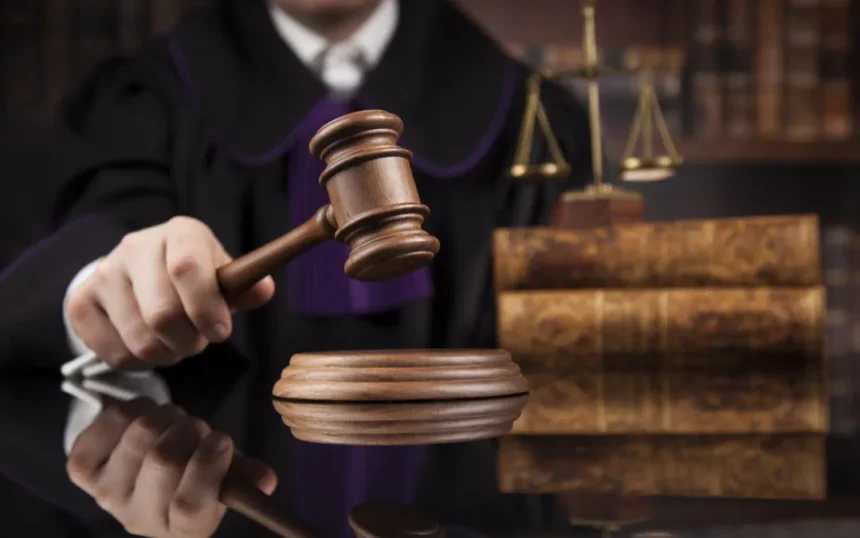Are you grappling with a lawsuit from a debt collector or credit card company? It’s an overwhelming experience, but there are proven strategies to challenge such lawsuits effectively. If you’re looking for guidance on how to get a debt lawsuit dismissed, you’ve come to the right place.
In this article, we’ll explore five actionable ways to get your debt collector lawsuit dismissed, based on expert insights and practical legal approaches. Whether it’s a third-party debt collector or an original creditor, understanding these strategies could save you from unnecessary financial burdens.
1. Lack of Jurisdiction Over the Subject Matter
A critical defense against a debt collection lawsuit is to argue lack of jurisdiction. Jurisdiction refers to the court’s legal authority to hear a case, and without proper jurisdiction, the lawsuit cannot proceed.
How It Applies:
- Out-of-State Suits: Debt collectors sometimes file lawsuits in states where the defendant neither resides nor conducts business. Such practices violate jurisdictional rules.
- Licensing Issues: Certain states require debt collectors to be licensed in that state to sue you. If they fail to meet this requirement, you can request dismissal based on jurisdictional grounds.
What to Do:
- Research your state’s laws regarding jurisdiction and licensing.
- If the lawsuit is filed in an improper court, bring this to the judge’s attention during your hearing or in a written motion.
2. Lack of Personal Jurisdiction
In addition to subject matter jurisdiction, the court must also have personal jurisdiction over you. Personal jurisdiction refers to the court’s power over the specific parties involved in the lawsuit.
How It Applies:
- Connection to the State: The debt collector must demonstrate a substantial connection between you and the state where the lawsuit was filed.
- Sovereign Citizenship or Incorrect Defendant Identification: Personal jurisdiction is often challenged in cases involving these issues.
What to Do:
- Review the complaint carefully to identify any gaps in the connection between you and the court’s jurisdiction.
- If applicable, file a motion to dismiss based on lack of personal jurisdiction.
3. Improper Venue
Venue refers to the specific location where a lawsuit is filed. Even if the court has jurisdiction, the lawsuit must be filed in the correct venue. An improper venue can be a valid ground for dismissal.
How It Applies:
- Convenience and Relevance: Debt collectors may file a lawsuit in a location that is inconvenient or unrelated to your residence or business.
- Example: Suing you in a state where the creditor’s headquarters are located rather than your home state may constitute improper venue.
What to Do:
- Check the venue rules in your state.
- File a motion to dismiss or transfer the case if the venue is improper.
4. Insufficient Service of Process
Proper service of process is a fundamental requirement in any lawsuit. If you were not served with the court summons under your state’s rules, the lawsuit could be dismissed.
How It Applies:
- Service Methods: Some states require personal service, while others allow alternative methods like certified mail or publication.
- Proof of Service: If the plaintiff cannot prove that you were properly served, the court may dismiss the case.
What to Do:
- Review the proof of service filed by the plaintiff.
- If you were not properly served, file a motion to dismiss for insufficient service of process.
5. Failure to State a Claim Upon Which Relief Can Be Granted
Debt collectors must provide a legally valid claim to justify their lawsuit. If they fail to do so, the case can be dismissed.
How It Applies:
- Complaint Requirements: The complaint must clearly outline the debt, how it was incurred, and how the plaintiff is legally entitled to collect it.
- Lack of Evidence: Many lawsuits fail because they lack critical evidence, such as original account agreements or proof of ownership of the debt by the collector.
What to Do:
- Analyze the complaint for any missing or inadequate documentation.
- File a motion to dismiss because the plaintiff has failed to state a claim upon which relief can be granted.
Bonus Tip: Failure to Prove the Claimed Amount
In addition to the five main strategies, you can challenge the lawsuit based on the plaintiff’s failure to prove the claimed debt amount. Debt collectors often rely on incomplete or inaccurate records, which can work in your favor.
How It Applies:
- Comprehensive Evidence: The plaintiff must provide account statements, contracts, and payment histories to justify their claim.
- Inaccuracy Advantage: If they cannot substantiate the amount they are suing for, the case could be dismissed.
Key Takeaways
Debt collector lawsuits can be intimidating, but you don’t have to face them unprepared. By understanding jurisdictional rules, venue requirements, service of process standards, and the necessity of a valid claim, you can effectively challenge the lawsuit.
Quick Summary of Strategies:
| Strategy | Key Defense |
|---|---|
| Lack of Jurisdiction | Court lacks authority to hear the case. |
| Lack of Personal Jurisdiction | No substantial connection between you and the court. |
| Improper Venue | Case filed in an inconvenient or incorrect location. |
| Insufficient Service | Failure to serve you according to legal requirements. |
| Failure to State a Claim | Inadequate evidence or legal basis for the lawsuit. |
If you’re wondering how to get a debt lawsuit dismissed, these strategies provide a roadmap for success. Consult with an experienced attorney to tailor these defenses to your specific case and state laws.







